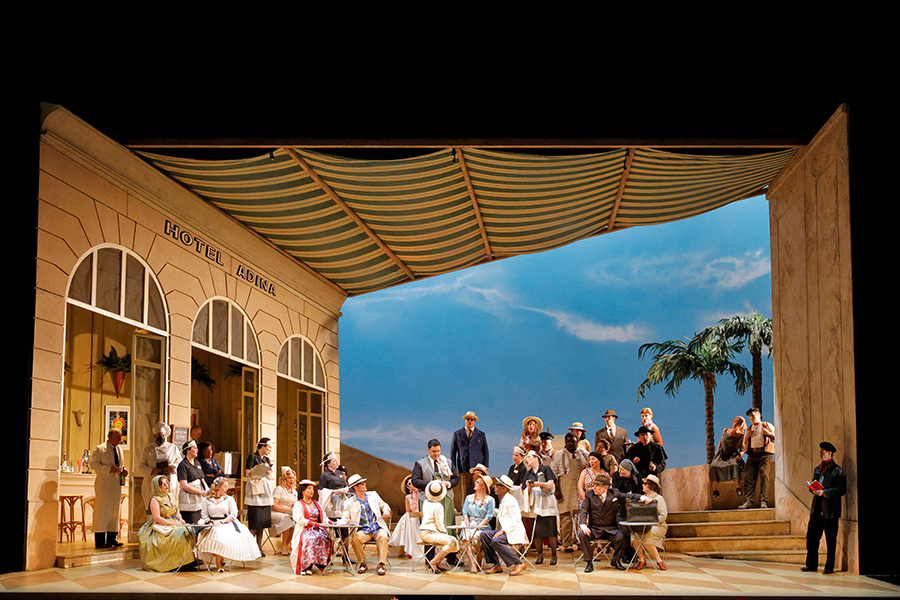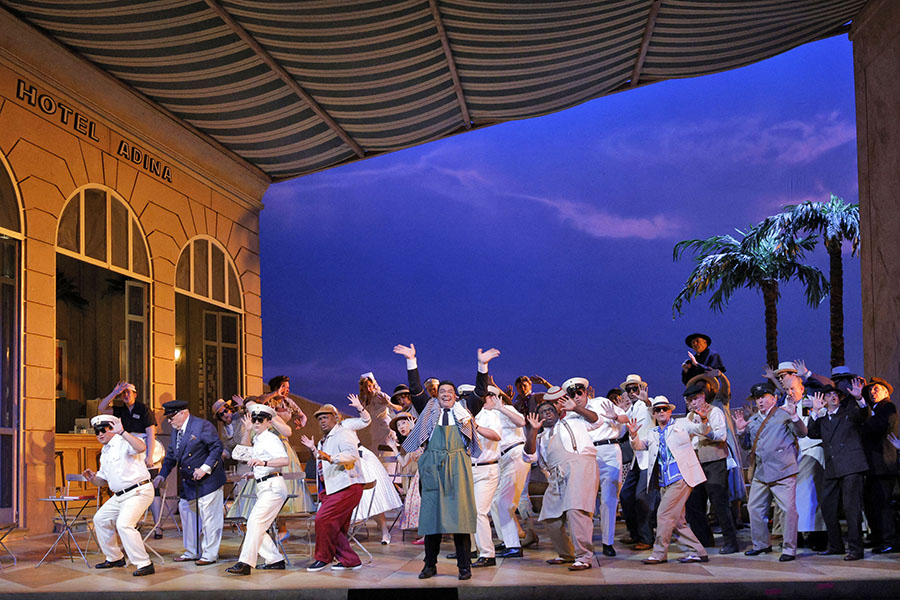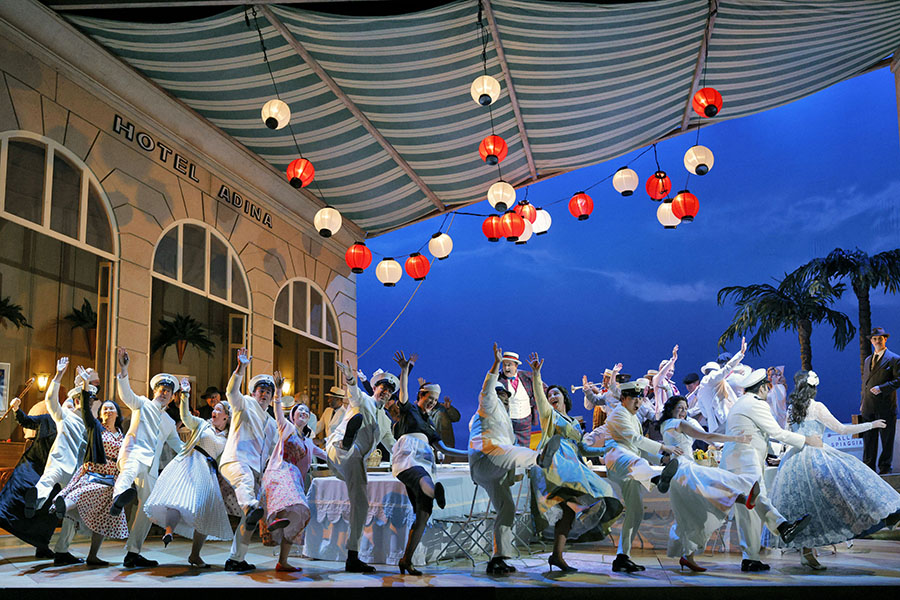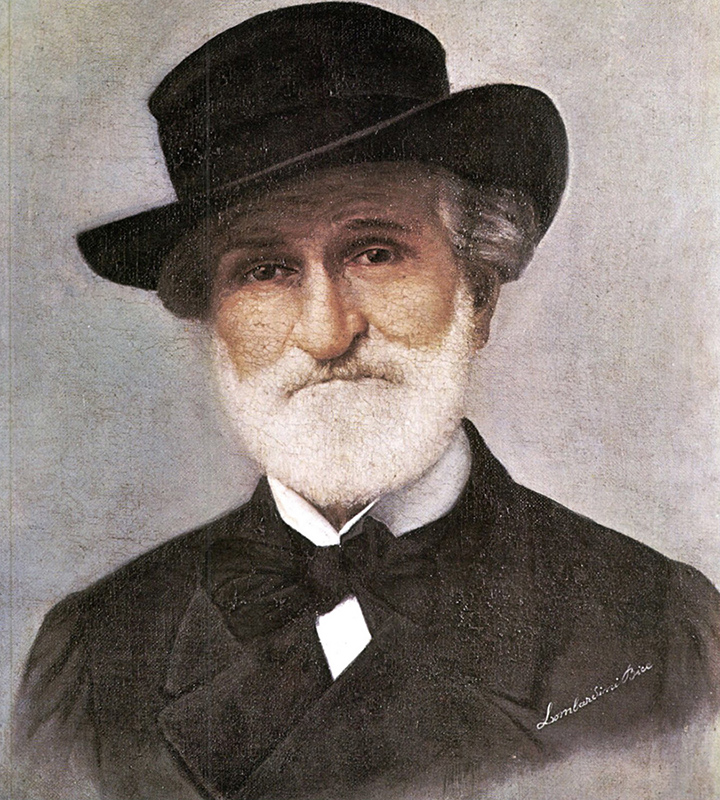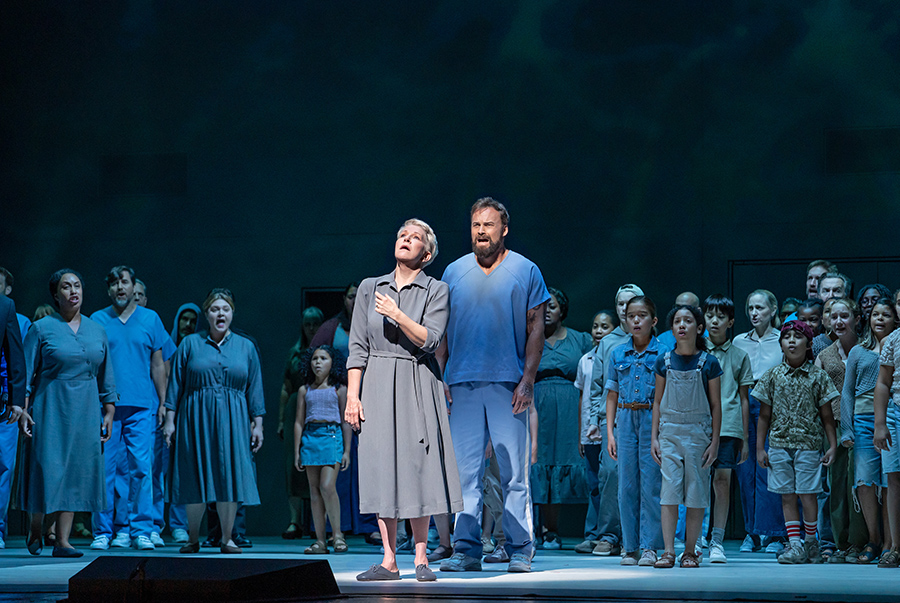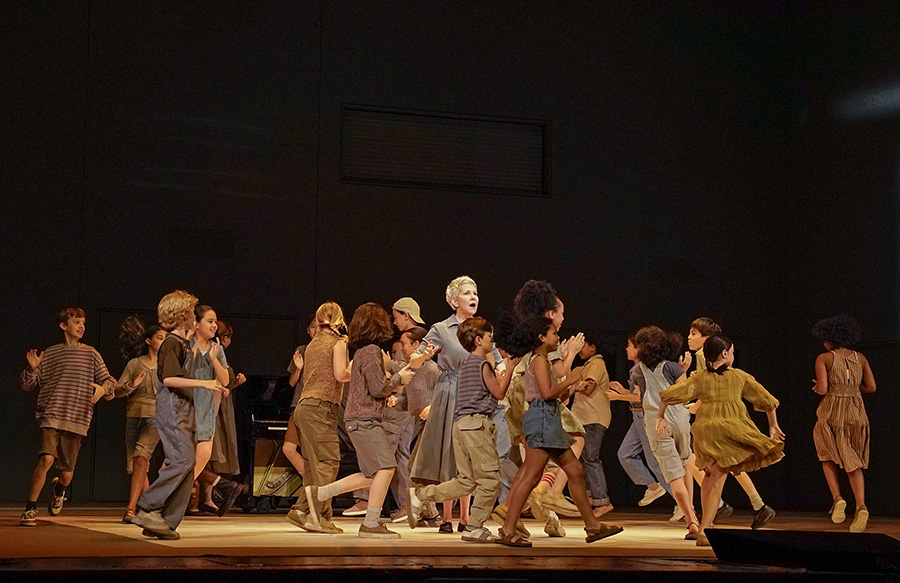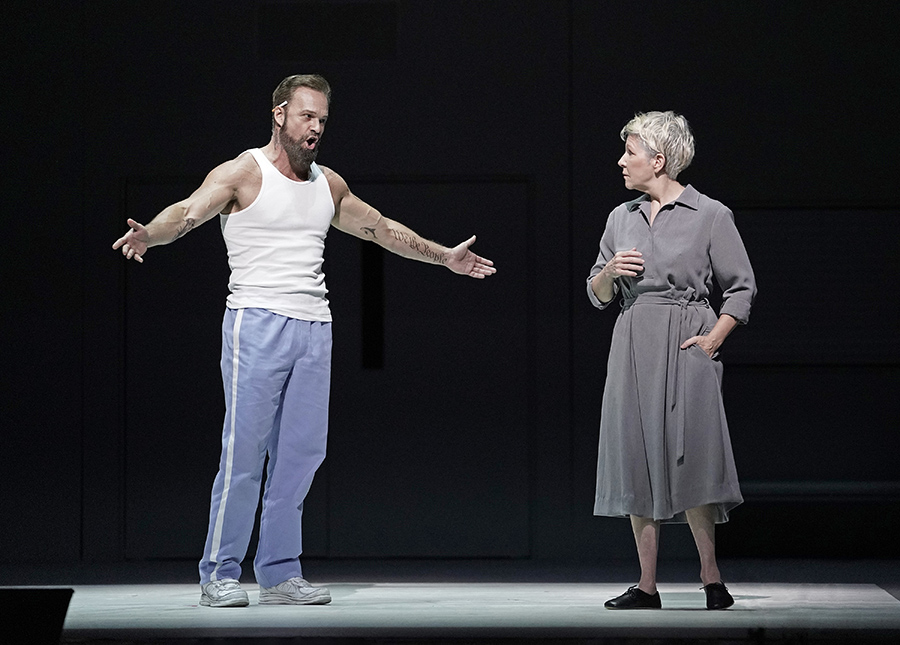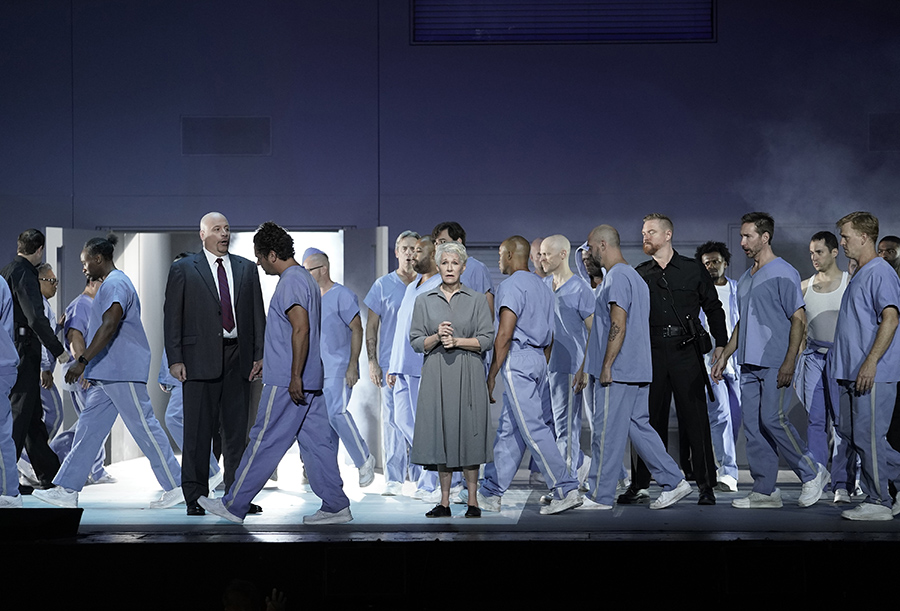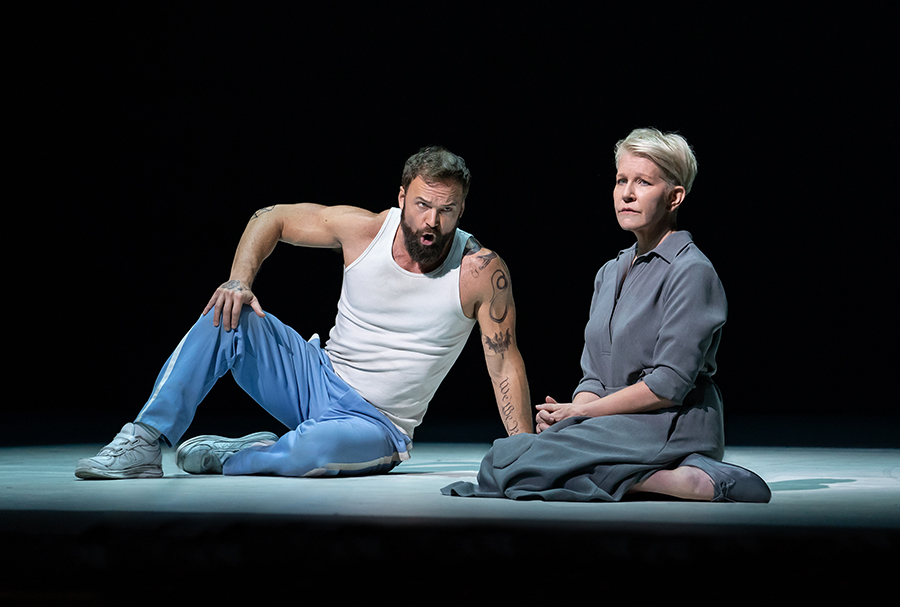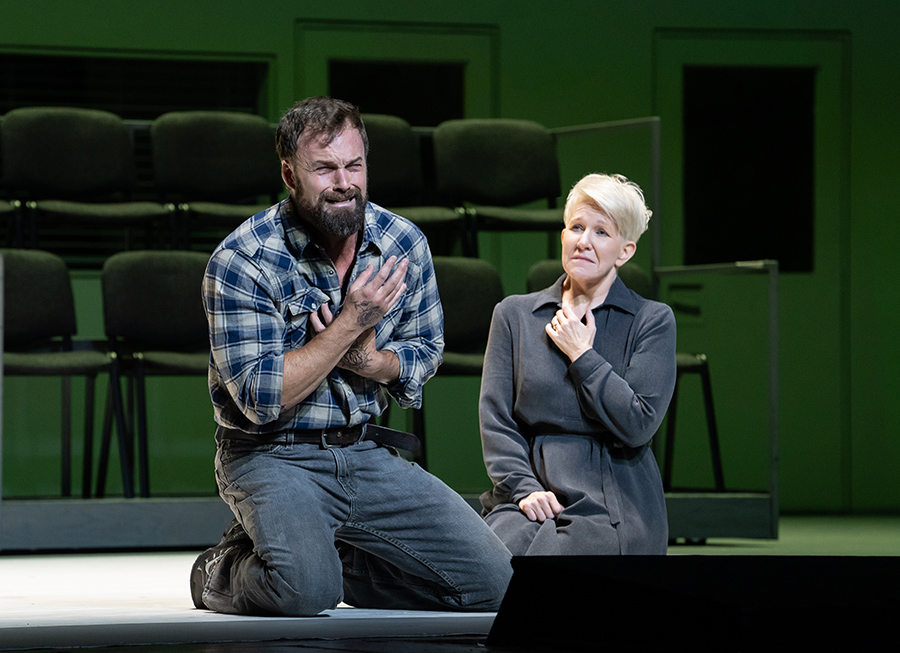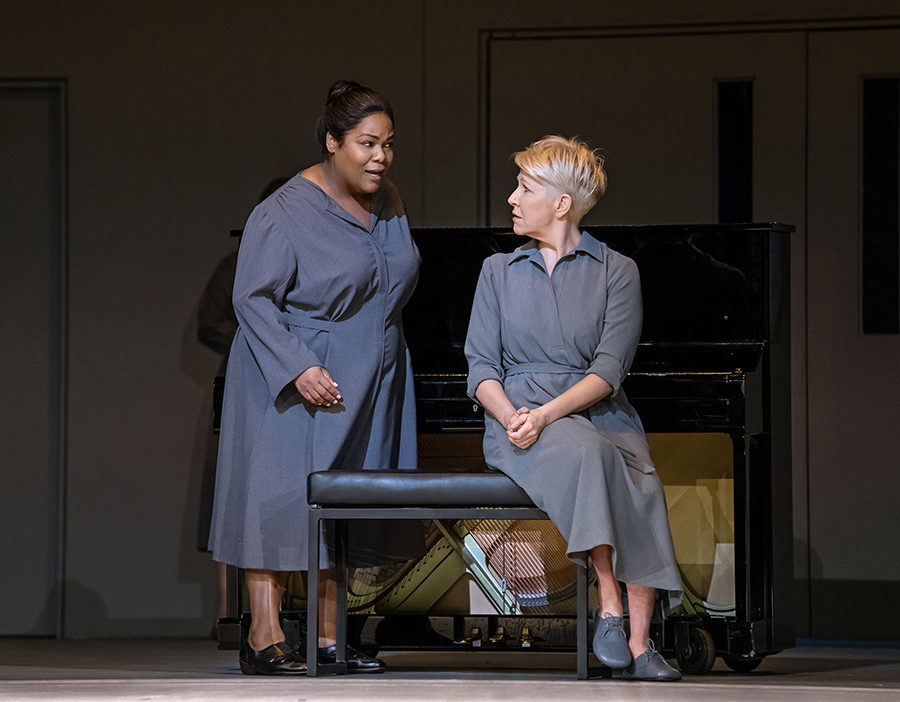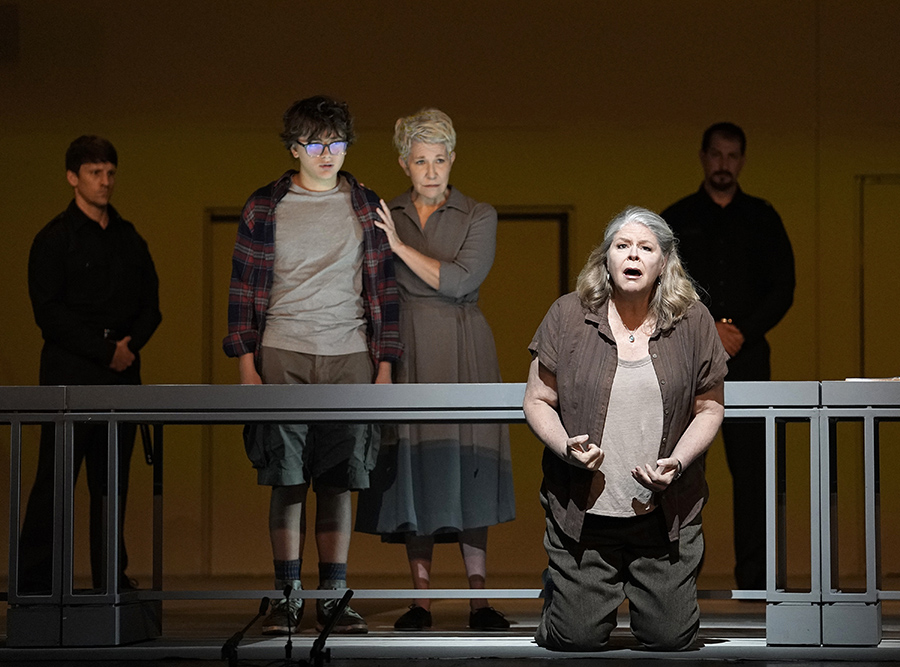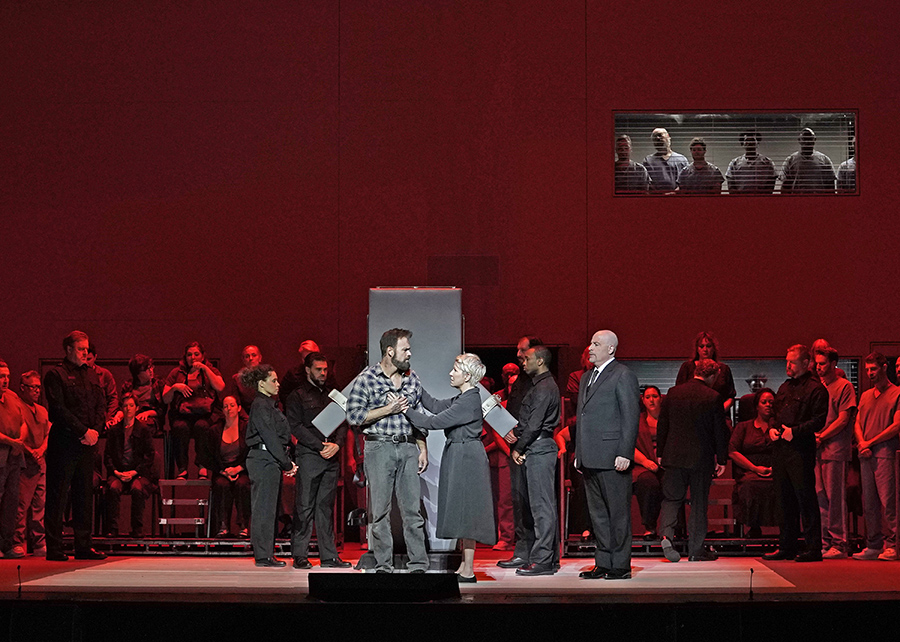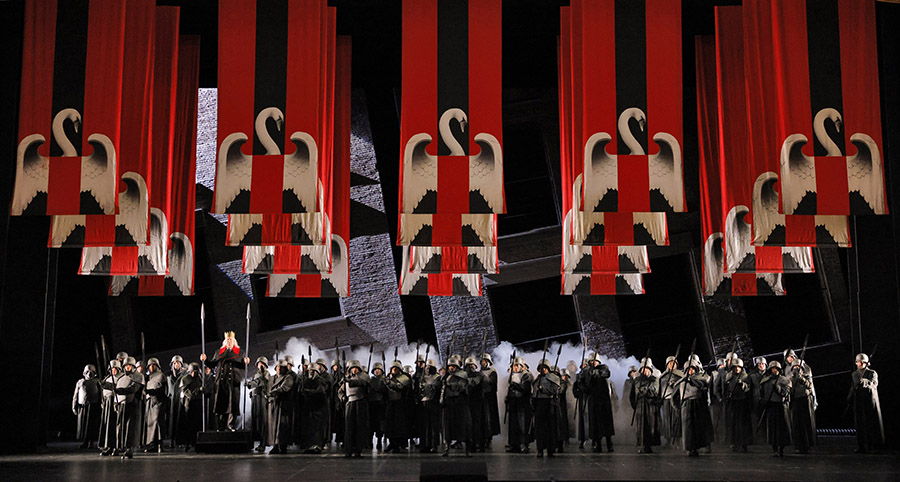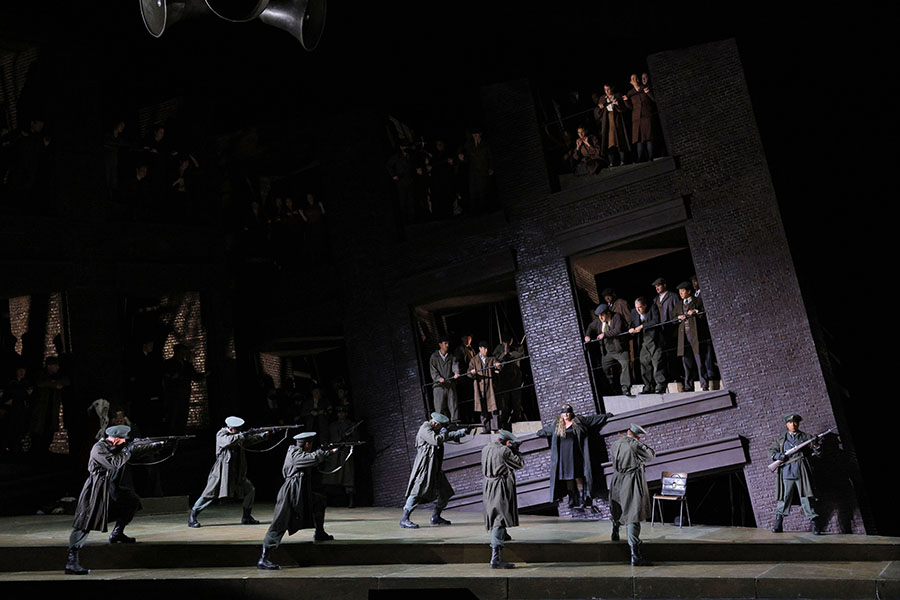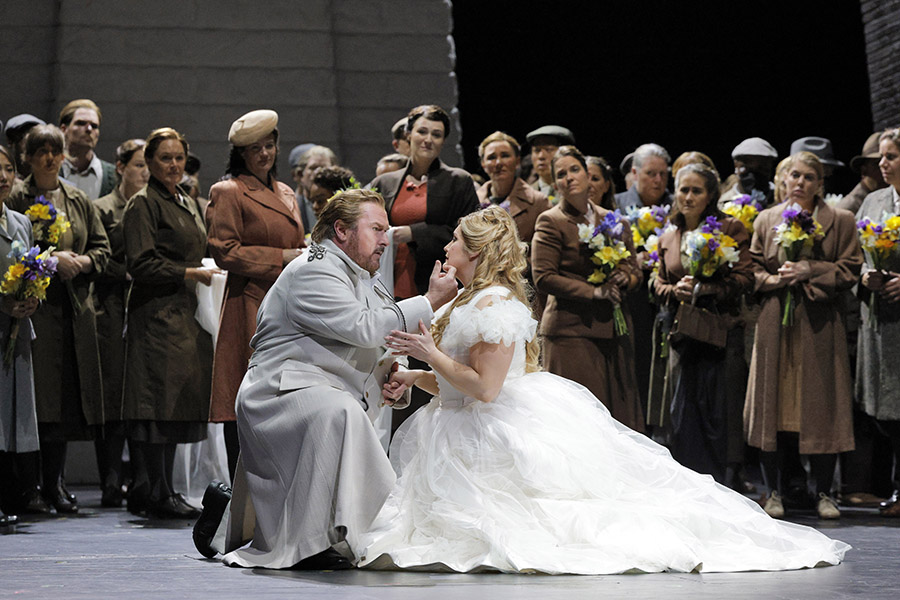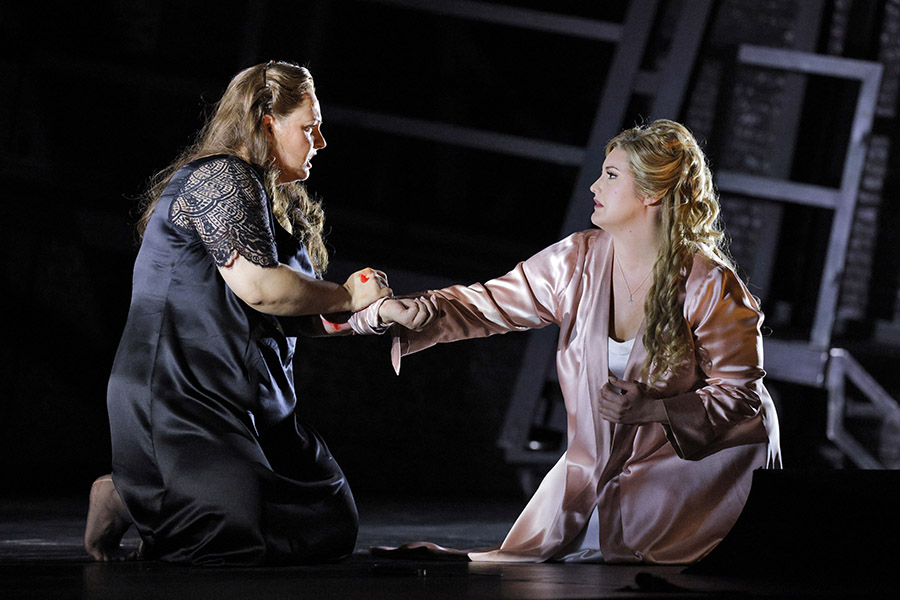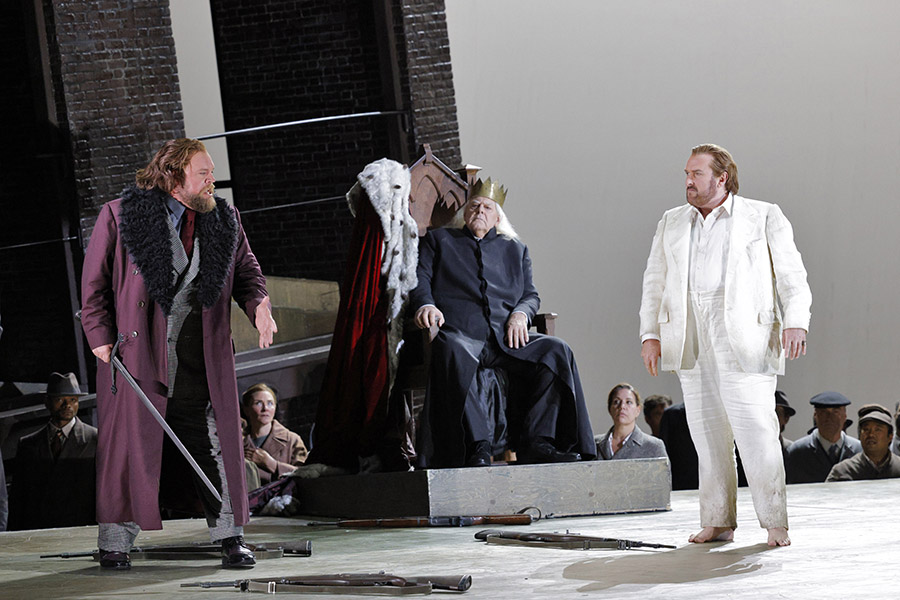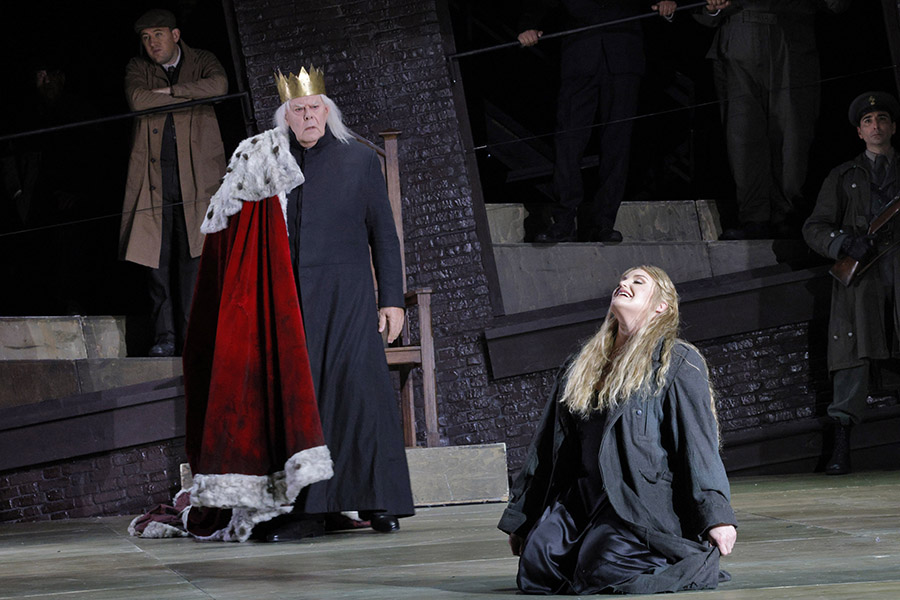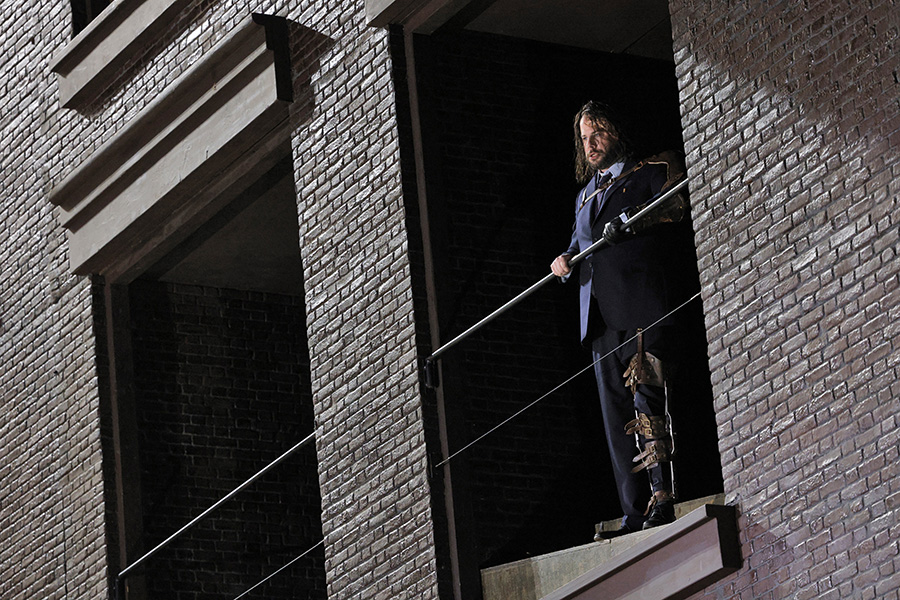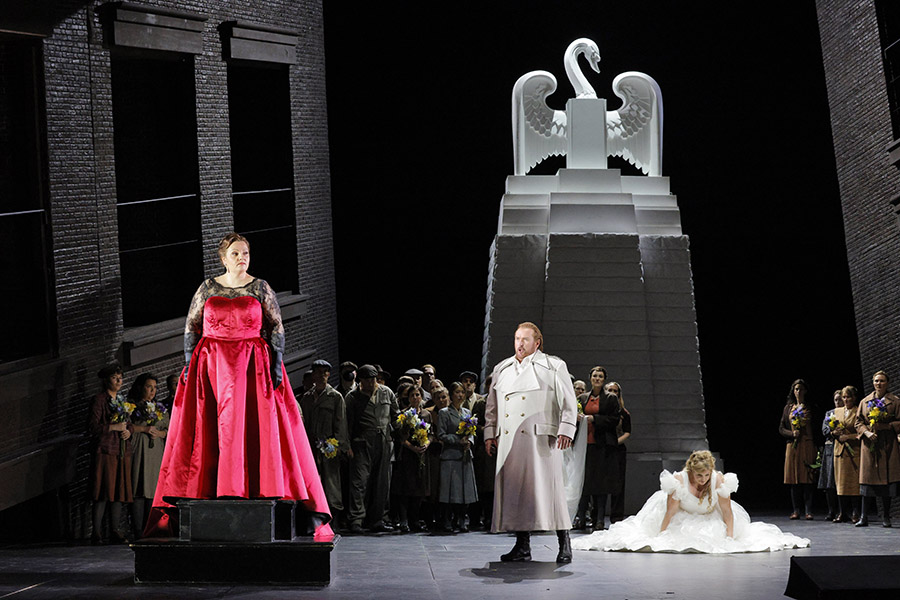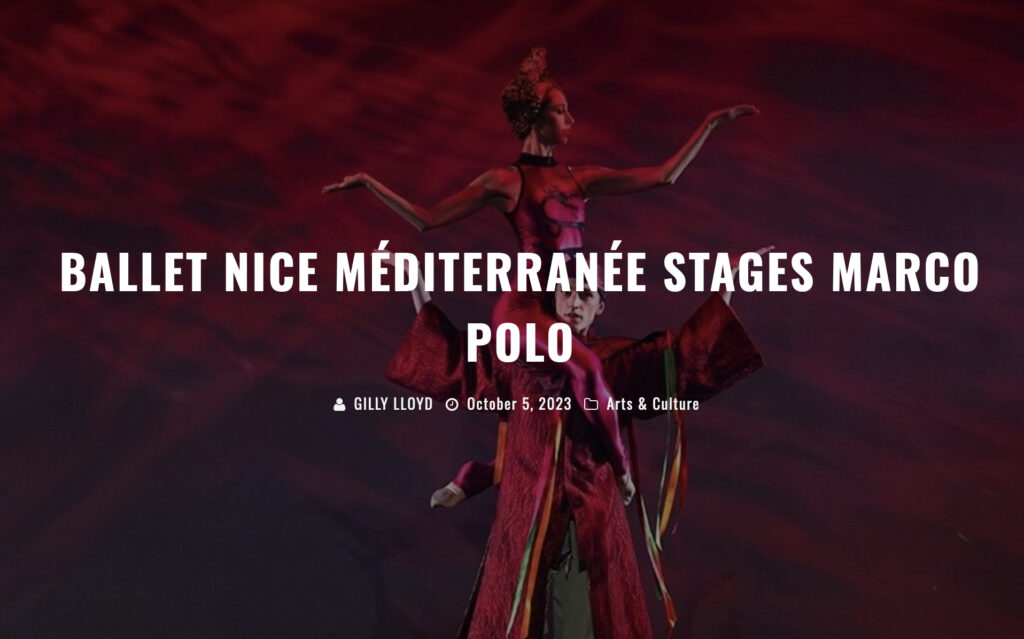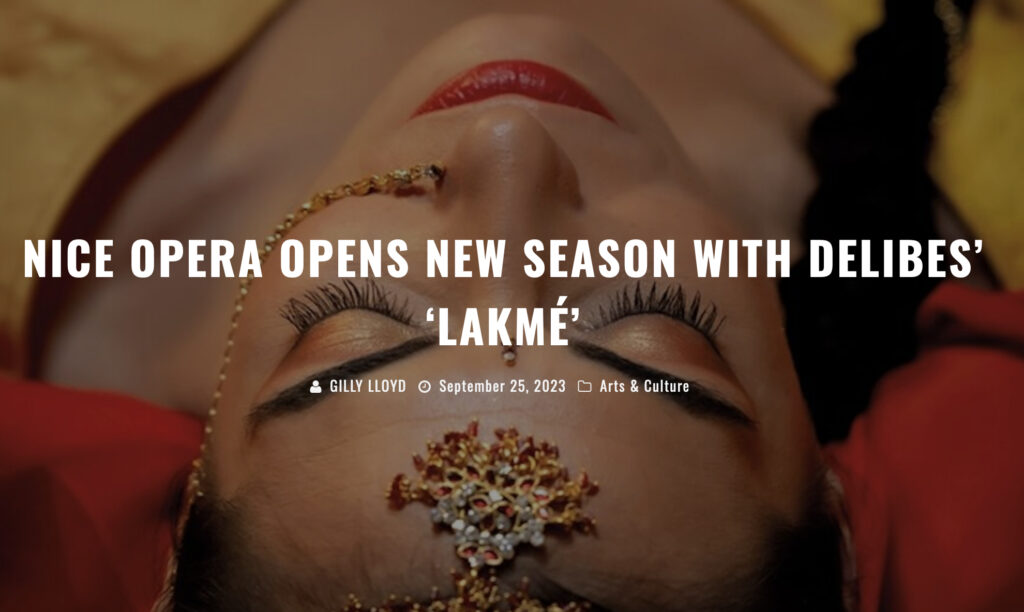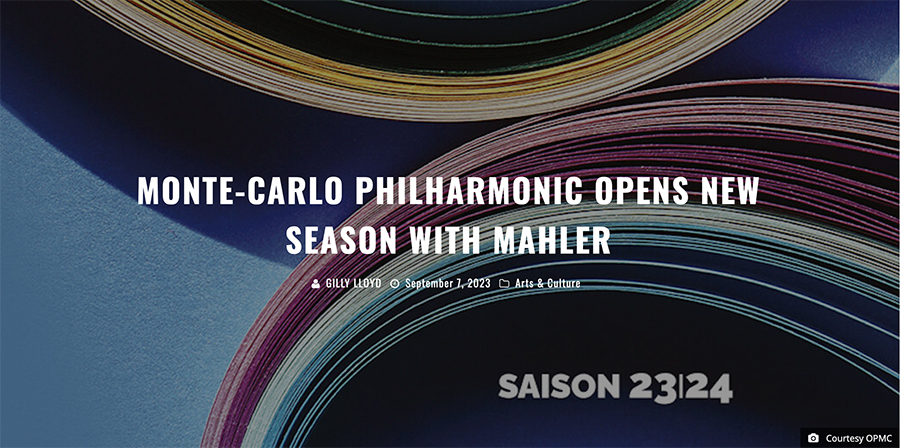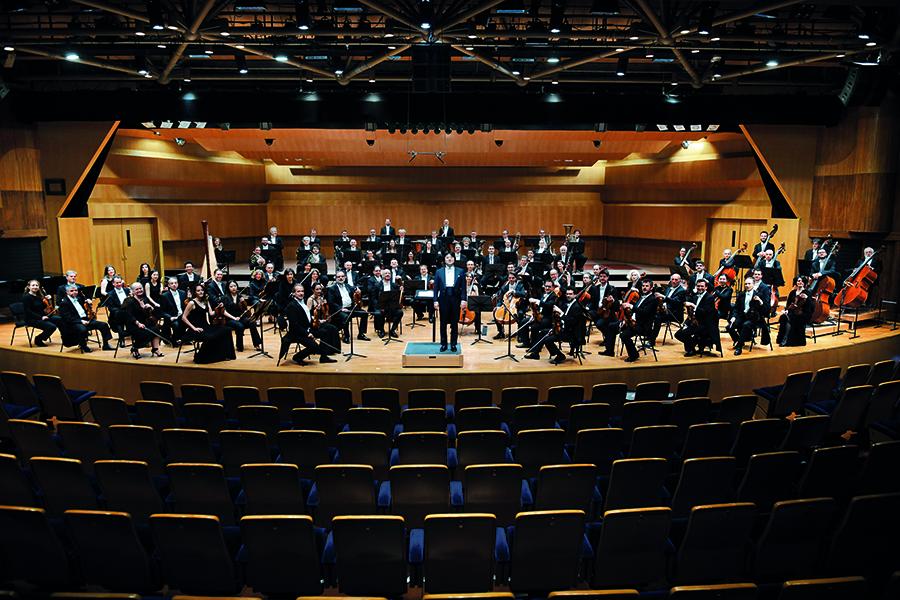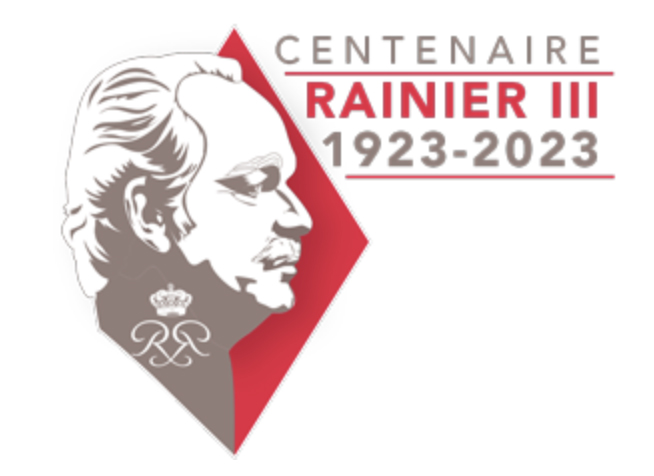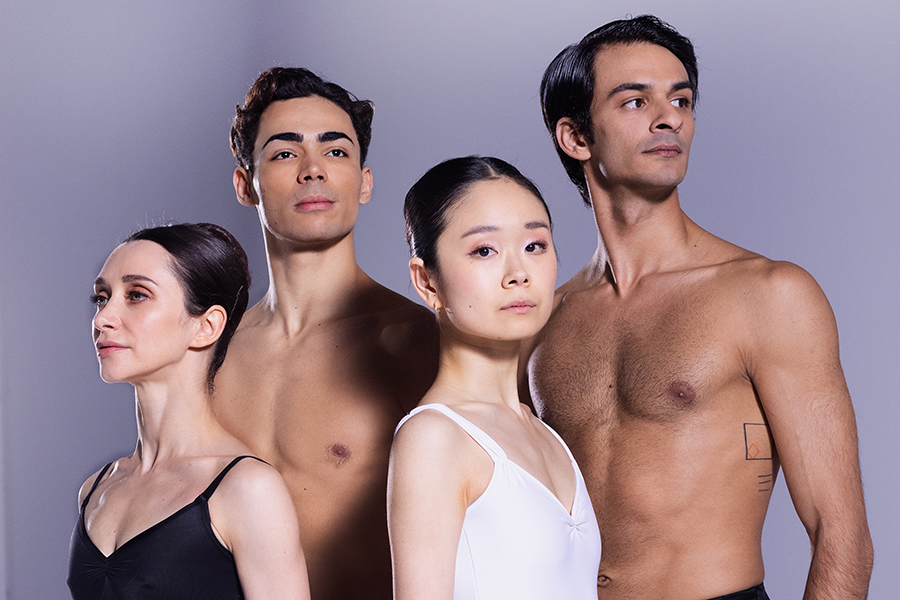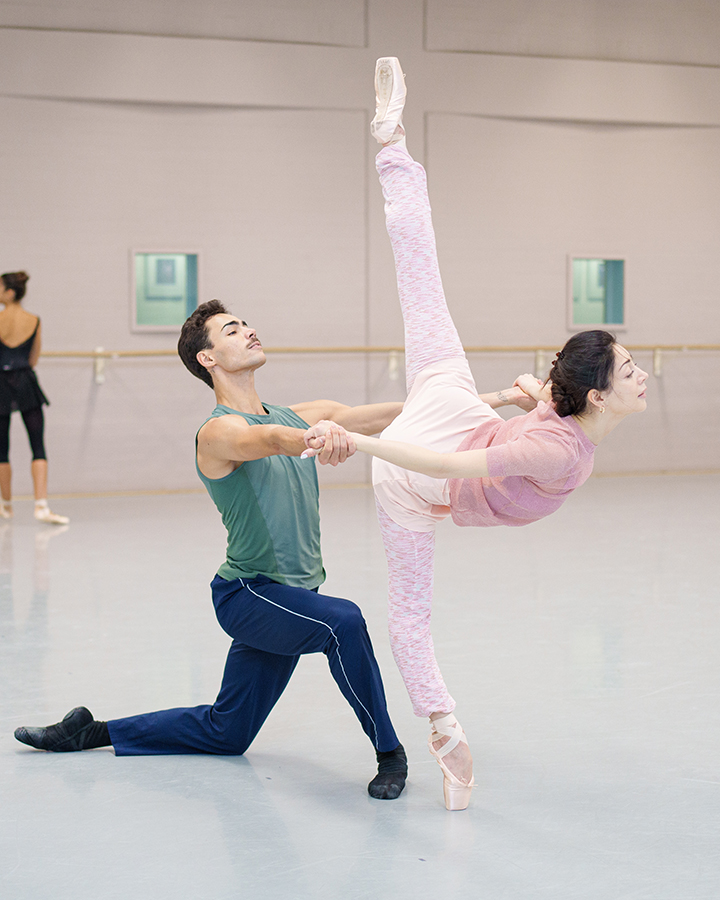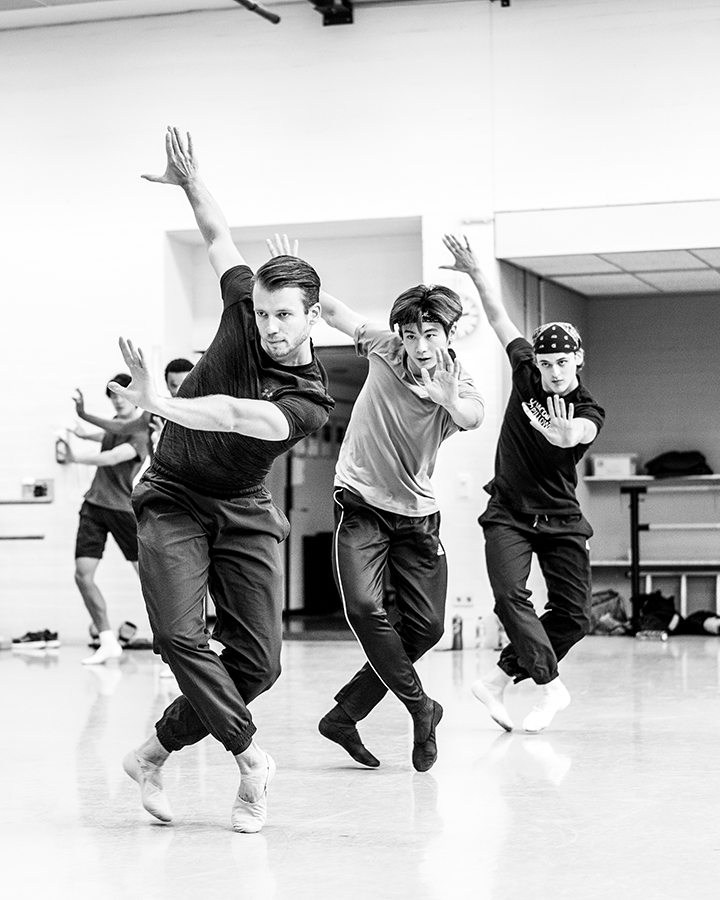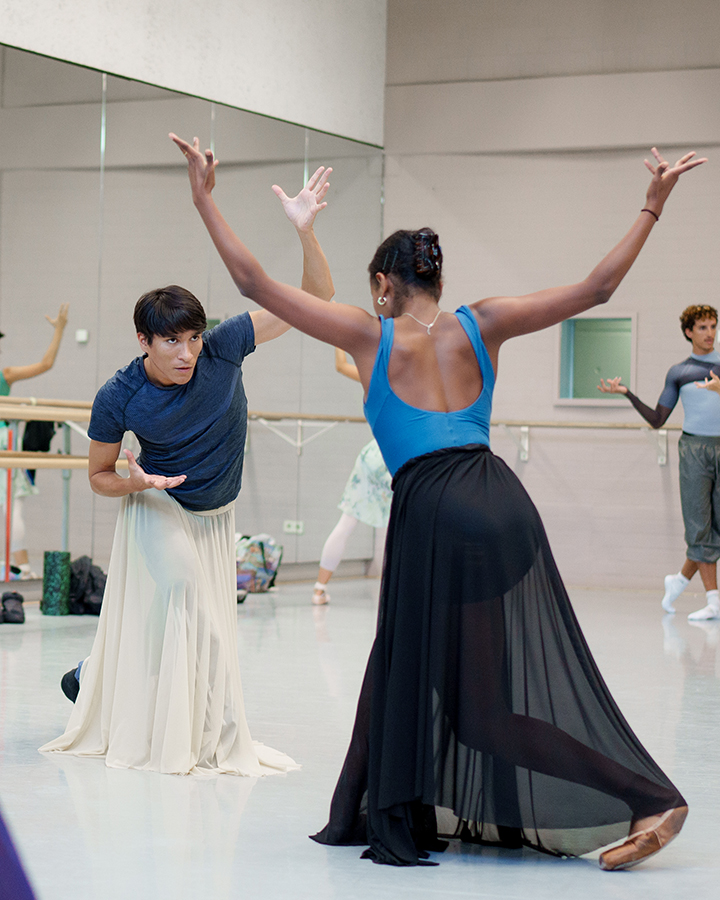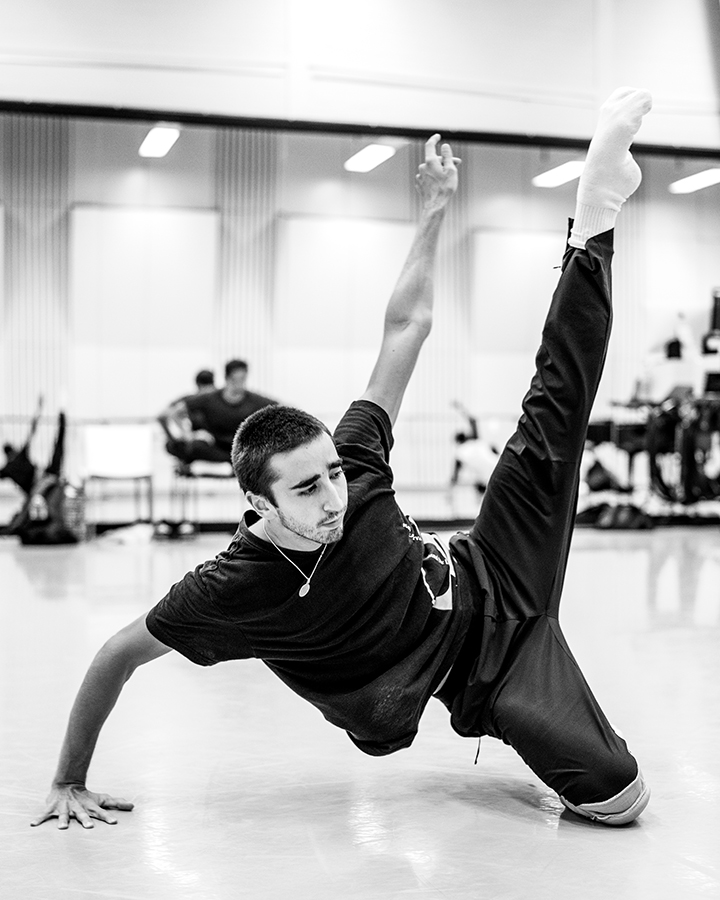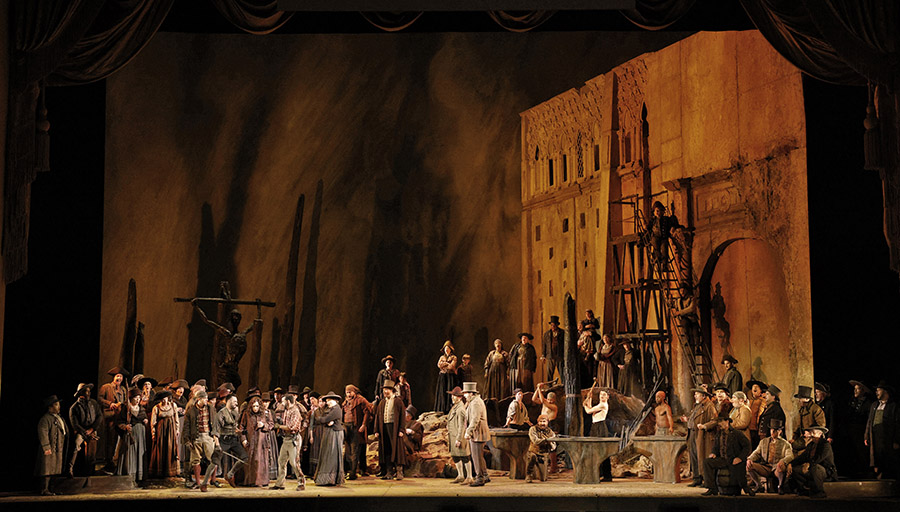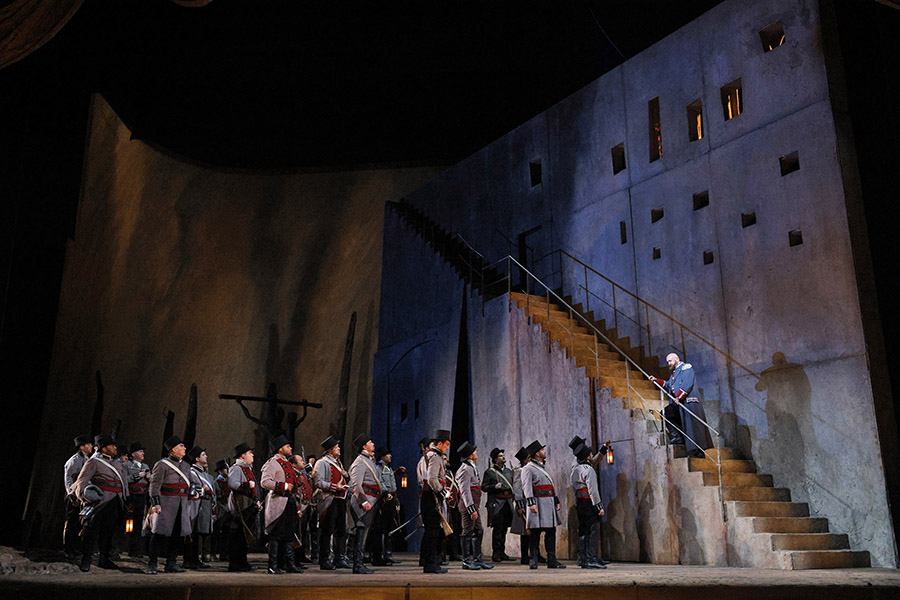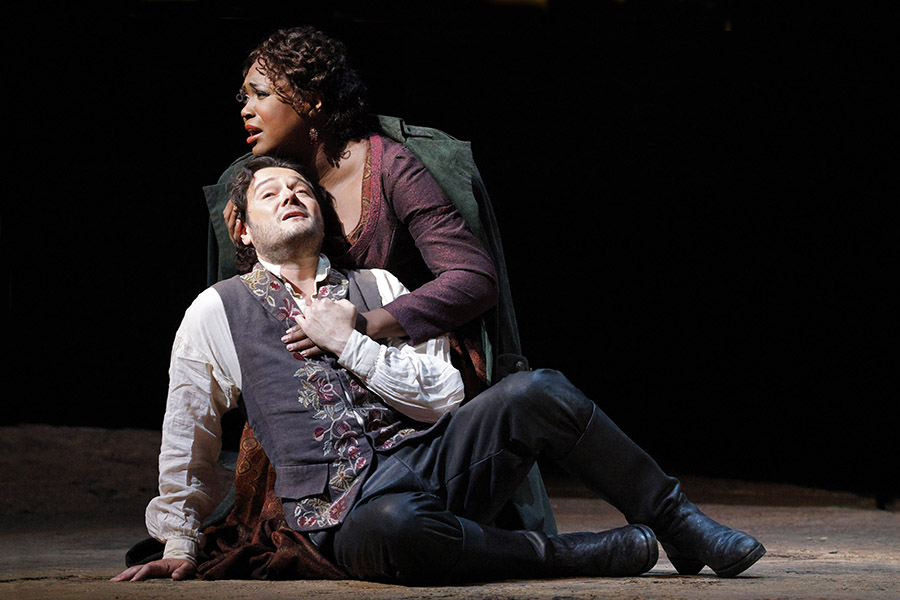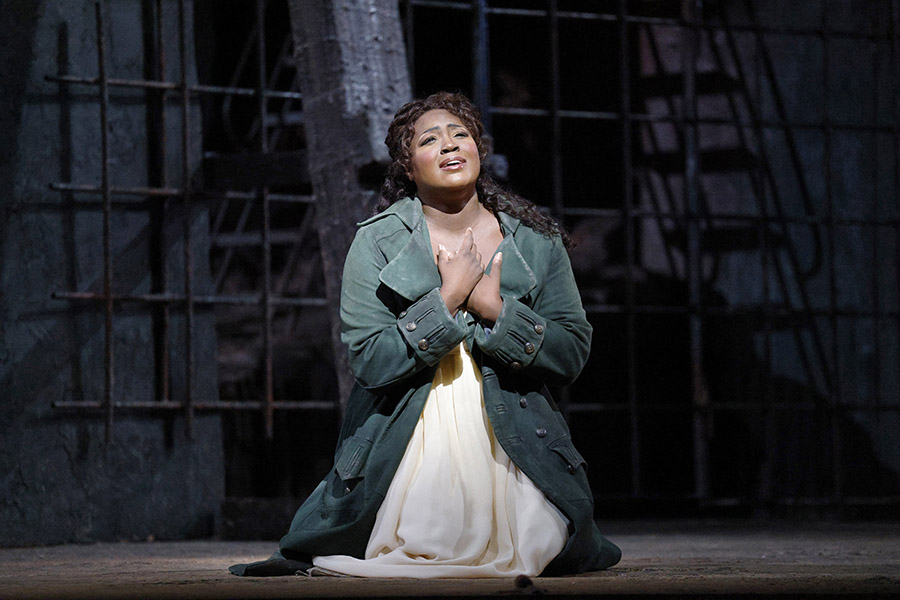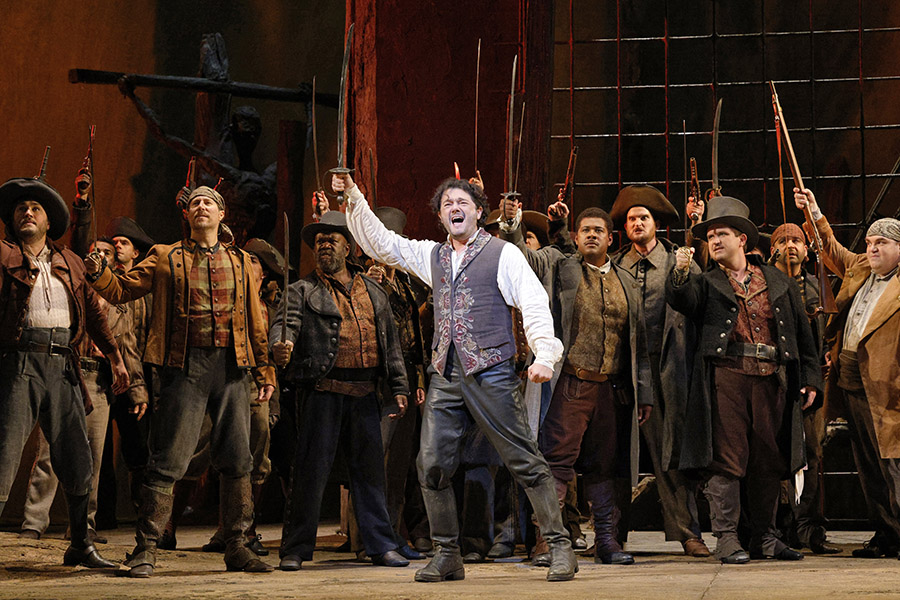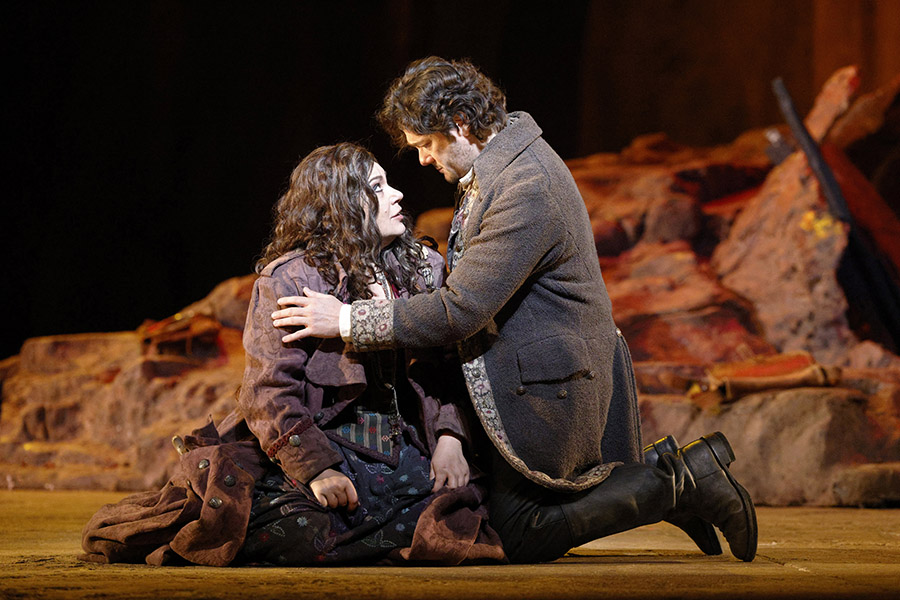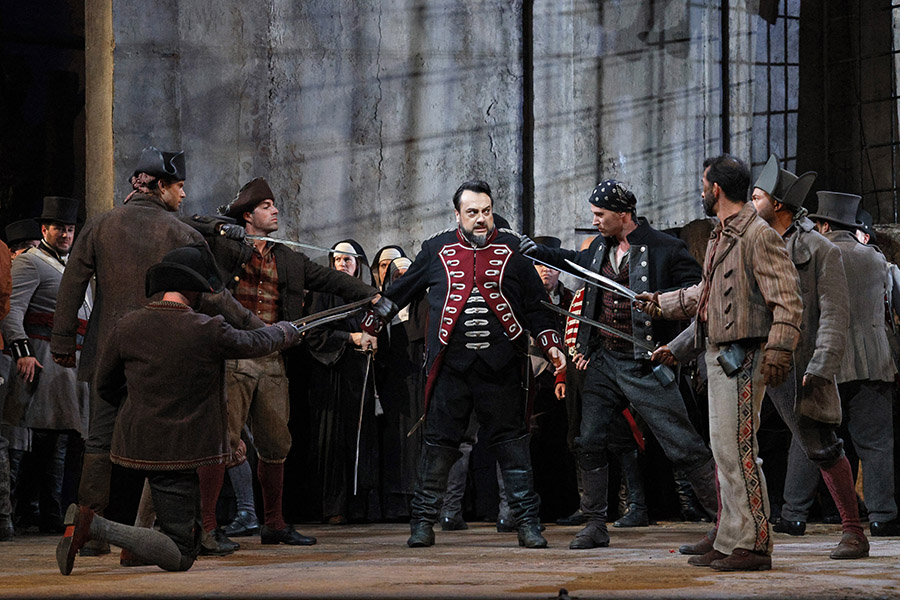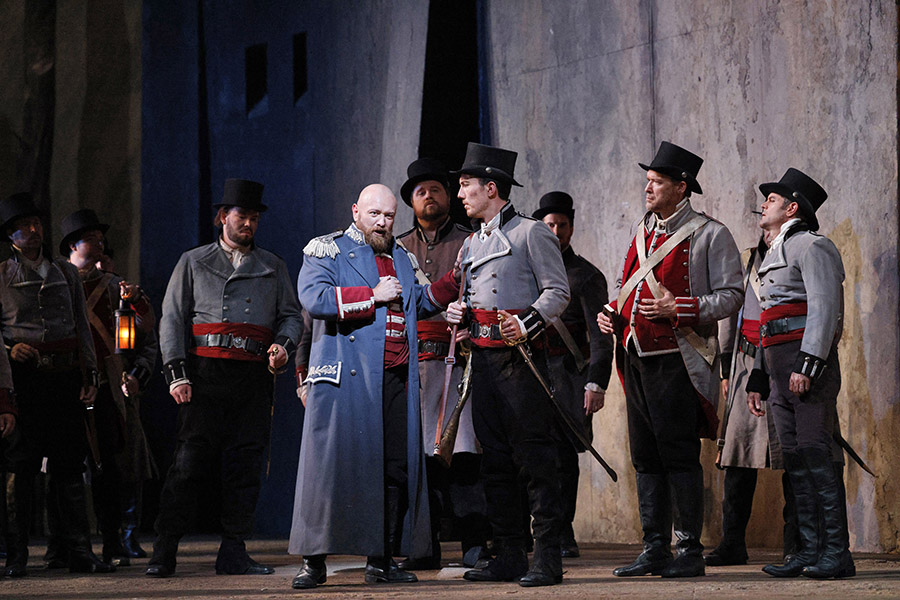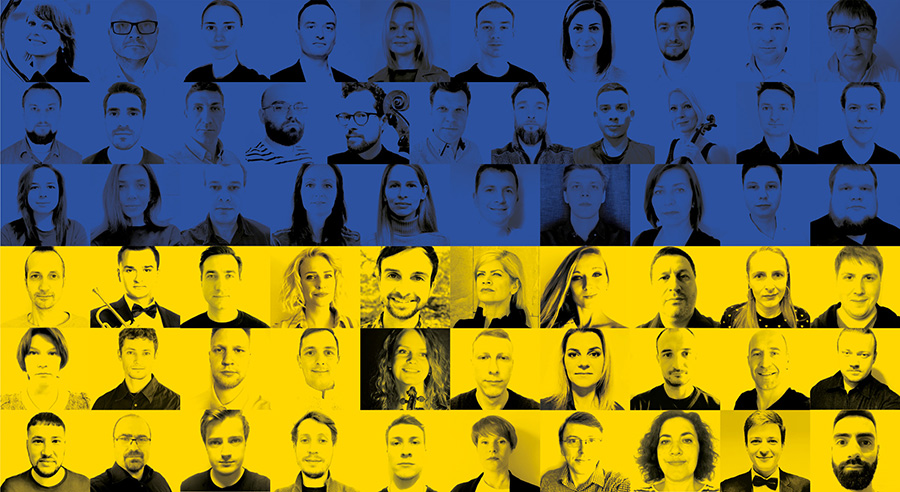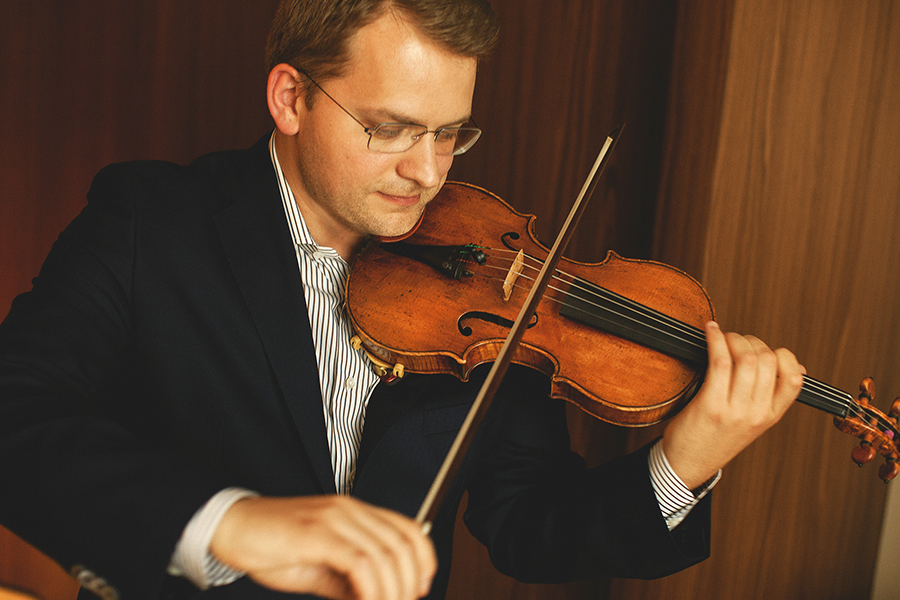San Francisco Opera closes its Fall Season with a new co-production, with Lyric Opera of Chicago, of Gaetano Donizetti’s The Elixir of Love. The West Coast Premiere of this opera buffo stars tenor Pene Pati as the young peasant Nemorino who is in love with Adina, soprano Slávka Zámečníková as the cool and aloof object of his love, baritone David Bizic as Belcore, the sargeant who hopes to marry Adina, baritone Renato Girolami as the charlatan Dulcamara, and soprano Arianna Rodriguez as Giannetta, Adina’s friend.
The production was conceived by Director Daniel Slater with Associate Producer and Choreographer Tim Claydon, who have brought this delightful romance of 1832 forward to an Italian village in the early 19th century. The conductor is Ramón Tebar, making his Company debut.
Donizetti wrote L’elisir d’amore (The Elixir of Love) in 1832 on commission from Teatro della Canobbiana in Milan – an opera in two acts which he completed in six weeks. The libretto was written by Felice Romani after a French libretto by Eugène Scribe for Daniel-François-Esprit Auber’s Le Philtre, which was written in 1831. The opera premiered in Milan on May 12th 1832.
Samoan tenor Pene Pati’s international career began at San Francisco Opera with his debuts as ll Duca di Mantova in Verdi’s Rigoletto in 2017, and as Richard Percy in Donizetti’s Anna Bolena at Opéra National de Bordeaux. He returned to San Francisco in 2019 as Roméo in Gounod’s Roméo et Juliette and debuted as Nemorino in the Paris Opera staging of L’elisir d’amore in 2021. Pati was selected as the Opera Awards Reader’s Choice Award Winner in 2022, and Opera-Online hailed him as “the most exceptional tenor discovery of the last decade”. Much in demand this season, his appearances include those of Germont in Verdi’s La traviata at Deutsche Oper Berlin, Orombello in Bellini’s Beatrice di Tenda at Opéra de Paris, des Grieux in Massenet’s Manon at the Staatsoper Hamburg, and Il Duca di Mantova in Rigoletto with State Opera Berlin.
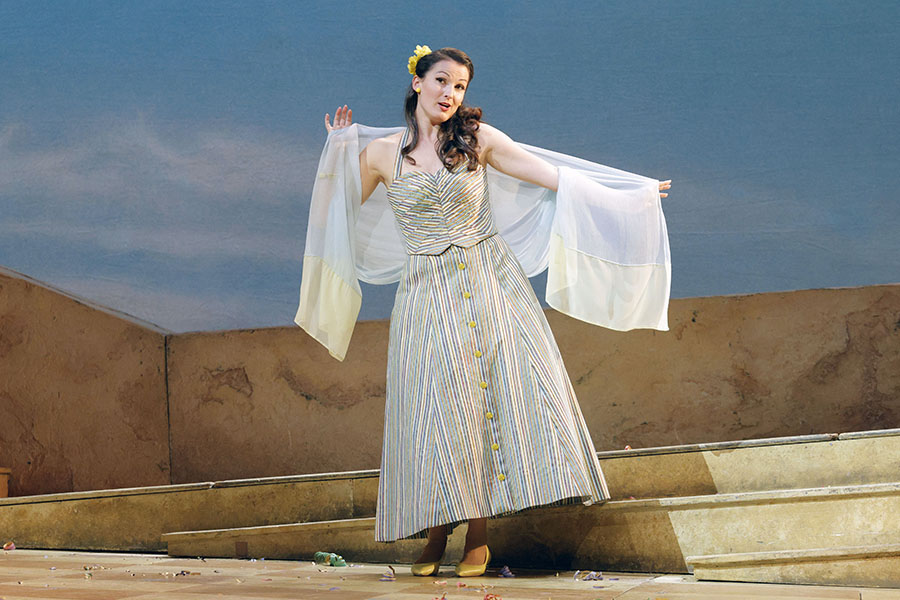
Photo: Cory Weaver/San Francisco Opera
Slovak soprano Slávka Zámečníková makes her American debut in the role of Adina. Having frequently appeared with the Vienna State Opera and Berlin Staatsoper, her roles during the past season include Donna Anna in Mozart’s Don Giovanni, Micaëla in Bizet’s Carmen and Marzelline in Beethoven’s Fidelio in Vienna, at the Staatsoper Unter den Linden in Berlin and Poppea and Dircé Cherubini’s Médée. In concert, she has performed in Haydn’s Creation with the Orchestre national de France. Future appearances include those of Musetta in La bohème at the Slovak National Theatre in Bratislava, and Donna Anna for Vienna State Opera where she will also sing the roles of Micaëla in Carmen and Donna Anna at Théâtre de Champs-Elyseés in Paris.
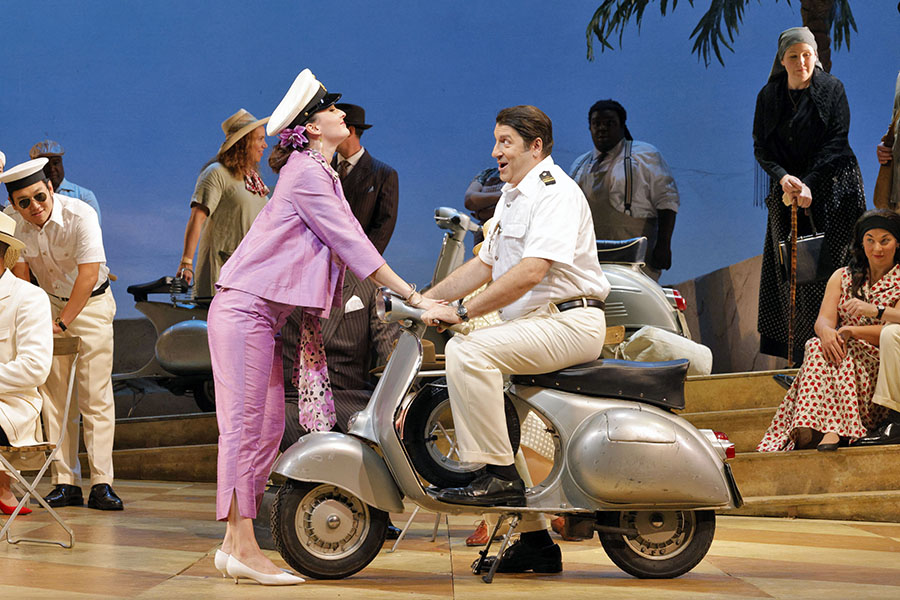
Photo: Cory Weaver/San Francisco Opera
Serbian baritone David Bizic celebrated his 50th performance for the Met last year with his appearance as Marcello in La bohème. Recent performances include the roles of Escamillo in Carmen for Opéra Royal de Wallonie-Liège, Marcello in La bohème for the Seiji Ozawa Music Academy in Tokyo and Don Alfonso in Mozart’s Cosí fan tutte for Opéra de Saint-Etienne in Toulon.
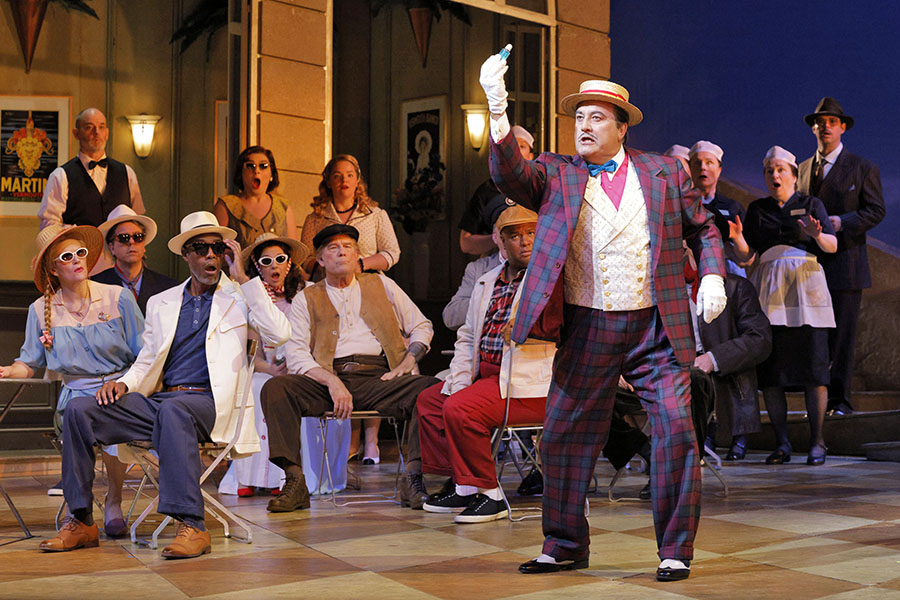
Photo: Cory Weaver/San Francisco Opera
Renato Girolami received critical praise for his portrayal of Dulcamara earlier this year at Glyndebourne, and following this appearance with San Francisco Opera, he appears as Don Bartolo in Rossini’s Il barbiere di Siviligia for the Staatsoper Berlin and Don Magnifico in Rossini’s La Cenerentola for Den Norske Opera in Oslo.
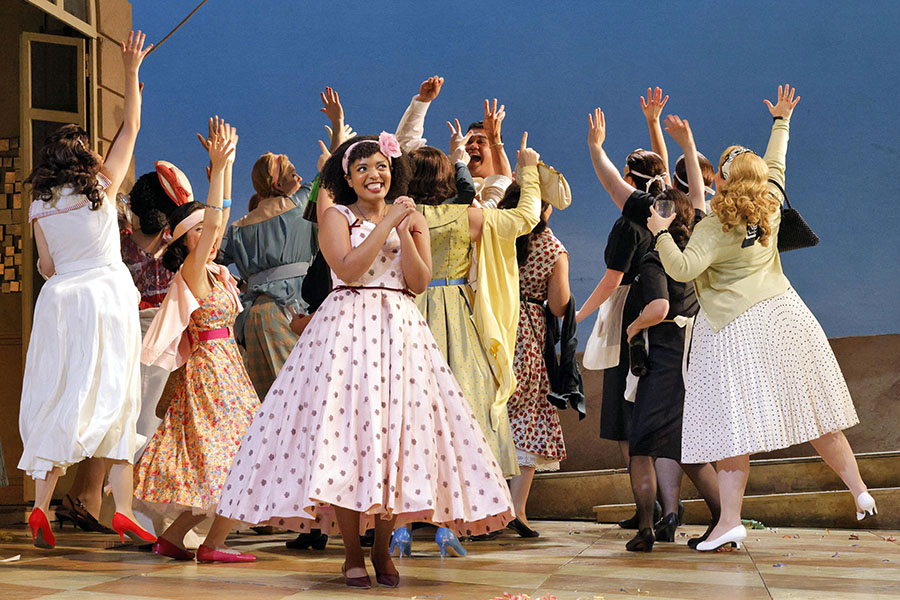
Photo: Cory Weaver/San Francisco Opera
Soprano Arianna Rodriguez takes the role of Adina’s friend, Gianetta. As a first-year Adler Fellow soprano, she adds this role to her repertoire. American tenor Jonah Hoskins, an ensemble member of the St. Gallen Theater in Switzerland, makes his house debut at San Francisco Opera at the November 29th performance. He sings Nemorino, a role in which he will appear at Santa Fe Opera next year.
Spanish conductor Ramón Tebar, of whom Opera World wrote that he “… once again demonstrated the material from which good directors are made”, leads the San Francisco Opera Orchestra and Chorus (Director John Keene) in these performances of The Elixir of Love. Sung in Italian with English supertitles, it will be staged at the War Memorial Opera House between November 19th and December 9th. For performance tickets and further information, visit the San Francisco Opera website.
This co-production of San Francisco Opera and Lyric Opera of Chicago was originally created by Opera North in the United Kingdom.
The production on Sunday, November 26th will be live-streamed, and the opera will also be available to watch on demand for 48 hours beginning on Monday, November 27th at 10.00 am PT. For tickets and more information about livestreams, visit sfopera.com/digital.
Information sourced from:
San Francisco Opera program notes
Artists’ websites

